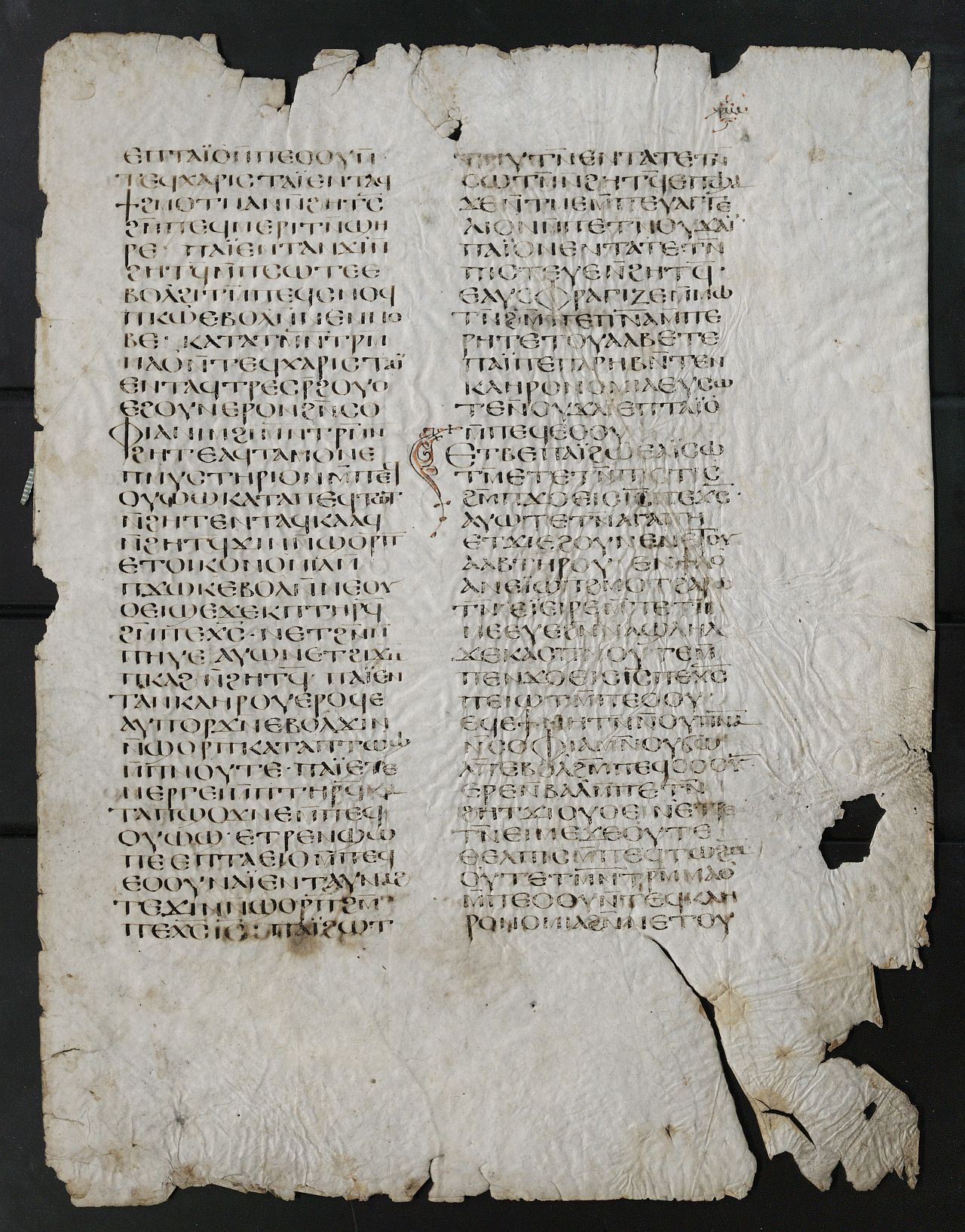History
On June 1, 1931 the Rev. Prof. Henry Hyvernat, Head of the Department of Semitic and Egyptian Languages and Literatures, wrote to the CUA Board of Trustees to propose a “Foundation for Research in Christian Oriental Literature” at the University. Already in 1919 Hyvernat had transferred $5800.00 in bonds and other monies to the University, and his neighbor Miss Margot had given her real estate in Brookland to the University (sold by CUA for $18,000.00) to provide for this foundation. In 1923 Hyvernat turned over to the University the title to his own 20,000 volume library of books and antiquities with the understanding and agreement that the library be kept separate for the use of the department, and that no materials be withdrawn from it and located elsewhere except with his formal consent. He added that it was his sincere hope that the Foundation shall always remain as an adjunct to the Department of Semitic and Egyptian Languages and Literatures.
On June 10, 1931, the University Board of Trustees established the Foundation (for Research in Christian Oriental Literature) “for the promotion of research in Christian Oriental Literature … By research is meant, not teaching or lecturing (already provided for by the Department of Semitic and Egyptian Languages and Literatures), not publishing (already provided for by the Corpus Scriptorum Christianorum Orientalium, jointly with the University of Louvain), but the scientific study of texts relating to the patrology, liturgy, hagiography, history, canon law, etc., of the Eastern Churches … with a view to the interpretation and publication of such documents.” By mutual agreement between the Board of Trustees and Hyvernat, the name of this Foundation was changed to Institute for Christian Oriental Research, and later it became the Institute of Christian Oriental Research.
Today the Institute of Christian Oriental Research (ICOR) continues to serve as the research auxiliary of the Faculty of Semitics. The ICOR library and antiquities collections in the Semitics/ICOR Library support the work of the faculty and the Institute. The library rooms (Mullen 031-037, entrance at 035 on the garden level of Mullen) house the academic faculty, the graduate cohort in Semitics, the postgraduate research institute, and the ICOR collections and faculty library. The library collections focus on the languages of the Hebrew Bible and the languages, literatures, and history of the early Jewish, Christian, and Muslim communities in the Middle East and North Africa. ICOR materials constitute the bulk of the collections.
Through its endowment, ICOR provides a majority of the Semitics/ICOR Library’s periodical subscriptions, monographs, and research tools. It provides conservation support for the antiquities and manuscripts collections. The library is staffed by a curator, who reports to the University Librarian, and by a Graduate Library Pre-Professional (GLP). The Semitics/ICOR library is one of the University Libraries' Special Collections. The Semitics faculty and ICOR support the work of the Corpus Scriptorum Christianorum Orientalium (CSCO). This series of editions, translations, and studies is a major repository of the published texts of early Near Eastern Christianity. Since 1912, the CSCO has been published jointly by The Catholic Universities of Louvain and of America--currently through Peeters Press (Leuven, Belgium). As of 2024 some 685 volumes have appeared. In 1997 CUA faculty established a new and complementary series: Eastern Christian Texts in Translation (ECTT).
ICOR Committee
The Committee meets annually.
Dr. Nathan Tilley (Faculty of Greek and Latin and Faculty of Semitics), Director
Dr. Monica J. Blanchard (Curator, Semitics/ICOR Library; Faculty of Semitics)
Dr. Aaron M. Butts (Faculty of Semitics, on leave)
Dr. Andrew Gross (Faculty of Semitics)
Dr. Shawqi Talia (Faculty of Semitics)
Dr. Janet A. Timbie (Faculty of Semitics)
ICOR Fellows Program
The ICOR Fellows Program provides a one-year renewable appointment (no stipend) for scholars in the broad areas of Christian Near Eastern Studies or the study of the Bible in its Near Eastern setting. Applicants should have completed a doctoral degree or be currently writing a doctoral dissertation.
ICOR Fellows have access to the Semitics/ICOR Library on-site and to the digital resources of Mullen Library. While no formal duties or obligations to ICOR and to the Semitics department are mandated, ICOR Fellows are encouraged to share their research work and interests with students and faculty through formal or informal presentations and meetings.

